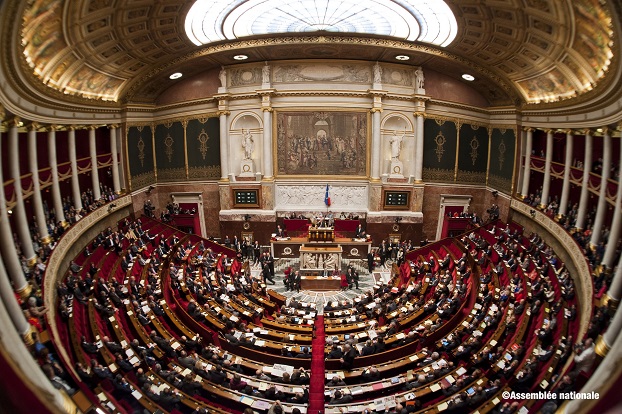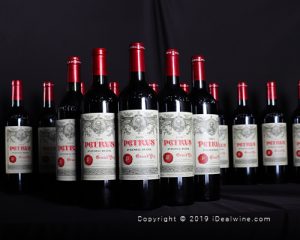The amendment to the controversial Evin Law, suggested by Senator Gérard César for a clear distinction between advertising and information regarding wine in France, was adopted by the National Assembly last week. This amendment has been dubbed ‘incomprehensible’ by his opponents, but celebrated by his followers – so what does it really mean?
The consideration by the National Assembly committee regarding the new Macron Law (Emmanuel Macron, minister for Economic Affairs) was validated on Thursday, 11th June, against the advice of the government. The amendment of Girondian Senator Gérard César (Republican, former UMP) provides a definition of advertising, in order to clarify the distinction between what is truly an advertisement and what is journalistic information.
Senator Gérard amended article L. 3323-3 of the code of public health, with advertising now being described as the “operation of communication carried out in favour of a product or service, relevant to the activity of a person who has an interest in the promotion of said product or service, and is susceptible to be perceived as an act of promotion for the attention of average consumers.” As a result, journalists speaking about wine tourism, for example, can no longer be prosecuted, while self-censorship, which is very prevalent, should also be significantly reduced. But the abuse thereof is feared by some…
For wine industry players and the media, this amendment is hailed as a great legal advance, ending a deleterious blur for the industry and the culture of wine. Joel Forgeau, Wine & Society President, said, “By distinguishing advertising information, parliamentarians return to the original spirit of the Evin Law: supervising advertising, but not prohibiting all forms of communication about wine.”
Similarly, Gilles Savary, socialist MP of the Gironde, said the amendment “does not call into question the spirit of the Evin Law, but aims to avoid that in France – with its ancestral wine tradition and the strong contribution of this sector to its foreign trade – it becomes risky for a journalist or filmmaker to mention wine products.”
On the other side, however, opponents of the amendment fear a strong liberalisation of alcohol advertising, with potential damage to public health. The alcohol prevention associations are therefore crying foul. Marisol Touraine, Minister of Health, was unhappy about this vote by the MPs, “The passage of this amendment is a blow to public health. I regret that the Macron Law is being used to unravel the Evin law.”
Yet to some experts, these reactions are disproportionate and the Evin Law is not really threatened. Lawyer Erwan Le Morhedec explained that the Evin Law will remain untouched; for him, even advertorials (the kind of advertising in the form of an article) would remain under the control of the Evin Law.
The battle for the amendment of the Evin Law seems to be ending with the success of the wine industry, but it still needs to be presented to the plenary at the Parliament in June. It could therefore still be changed and amended, specifically by the government. Victory is not yet 100% certain yet…
The amendment to the controversial Evin Law, suggested by Senator Gérard César for a clear distinction between advertising and information regarding wine in France, was adopted by the National Assembly last week. This amendment has been dubbed ‘incomprehensible’ by his opponents, but celebrated by his followers – so what does it really mean?
The consideration by the National Assembly committee regarding the new Macron Law (Emmanuel Macron, minister for Economic Affairs) was validated on Thursday, 11th June, against the advice of the government. The amendment of Girondian Senator Gérard César (Republican, former UMP) provides a definition of advertising, in order to clarify the distinction between what is truly an advertisement and what is journalistic information.
Senator Gérard amended article L. 3323-3 of the code of public health, with advertising now being described as the “operation of communication carried out in favour of a product or service, relevant to the activity of a person who has an interest in the promotion of said product or service, and is susceptible to be perceived as an act of promotion for the attention of average consumers.” As a result, journalists speaking about wine tourism, for example, can no longer be prosecuted, while self-censorship, which is very prevalent, should also be significantly reduced. But the abuse thereof is feared by some…
For wine industry players and the media, this amendment is hailed as a great legal advance, ending a deleterious blur for the industry and the culture of wine. Joel Forgeau, Wine & Society President, said, “By distinguishing advertising information, parliamentarians return to the original spirit of the Evin Law: supervising advertising, but not prohibiting all forms of communication about wine.”
Similarly, Gilles Savary, socialist MP of the Gironde, said the amendment “does not call into question the spirit of the Evin Law, but aims to avoid that in France – with its ancestral wine tradition and the strong contribution of this sector to its foreign trade – it becomes risky for a journalist or filmmaker to mention wine products.”
On the other side, however, opponents of the amendment fear a strong liberalisation of alcohol advertising, with potential damage to public health. The alcohol prevention associations are therefore crying foul. Marisol Touraine, Minister of Health, was unhappy about this vote by the MPs, “The passage of this amendment is a blow to public health. I regret that the Macron Law is being used to unravel the Evin law.”
Yet to some experts, these reactions are disproportionate and the Evin Law is not really threatened. Lawyer Erwan Le Morhedec explained that the Evin Law will remain untouched; for him, even advertorials (the kind of advertising in the form of an article) would remain under the control of the Evin Law.
The battle for the amendment of the Evin Law seems to be ending with the success of the wine industry, but it still needs to be presented to the plenary at the Parliament in June. It could therefore still be changed and amended, specifically by the government. Victory is not yet 100% certain yet…
Translated and adapted from the original French article written for iDealwine
Access the current iDealwine sales
Visit iDealwine.com




